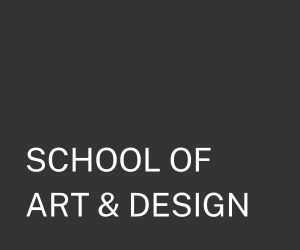Diverse Indigenous Voices Heard in US Exhibition; 'Everywhen'
/Stephen Gilchrist, the Australian Studies Visiting Curator at the Harvard Art Museums, in front of Vernon Ah Kee’s many lies (2004), during preparation for ‘Everywhen: The Eternal Present in Indigenous Art from Australia’, Harvard Art Museums, 2016; image courtesy and © President and Fellows of Harvard College, Cambridge, Massachusetts; photo: Kris Snibbe/Harvard University
‘Everywhen: The Eternal Present in Indigenous Art from Australia’ at the Harvard Art Museums is from Indigenous Australian curator Stephen Gilchrist. The Australian Studies Visiting Curator at the American museum brings together some 70 works from Australia that explore Indigenous conceptions of time, seasonality, performance and remembrance. The pieces are diverse, dating from the last 40 years, and the exhibition reflects on how the art historical landscape has shifted in its representation and understanding of Indigenous art. Artists on show include Vernon Ah Kee, Emily Kame Kngwarreye, Doreen Reid Nakamarra, Rover Thomas, Christian Thompson and Judy Watson.
‘Everywhen’ is a term first used by Australian anthropologist William Stanner, and is an apt expression to describe an Indigenous perception of time as being layered and interconnected. This essential idea relies on active encounters between the ancestral and natural worlds, and is reflected in the exhibition's sentiment that ideas must evolve and shift; nothing can remain fixed.
The exhibition aims to present an Indigenous narrative that is not bound to the canon of colonial constructs. It invites the 40,000-plus years of Indigenous residence alongside those 228 years of European colonisation to share the exhibition space; Gilchrist is attempting to create an expansionary movement in understandings of Indigenous ways of being in the world.
Acknowledgment of country is performed within the exhibition, a largely foreign idea for American audiences: something Gilchrist calls an active process of ‘Indigenising’ a place. It is a political act of declaring to the world the sovereignty of Indigenous land, words and bodies. The impact of the show deepens in its placement on an American site, where a similar history of erasure has occurred.
The show closes 18 September 2016 for our friends and visitors in North America. For those not lucky enough to catch it, read our in-depth interview with Stephen Gilchrist by the historian Khadija von Zinnenburg Carroll in our September issue, out now.
Everywhen: The Eternal Present in Indigenous Art from Australia, exhibition view of the Seasonality-themed gallery, Harvard Art Museums, 2016; image courtesy and © President and Fellows of Harvard College, Cambridge, Massachusetts; photo: Harvard Art Museums


















